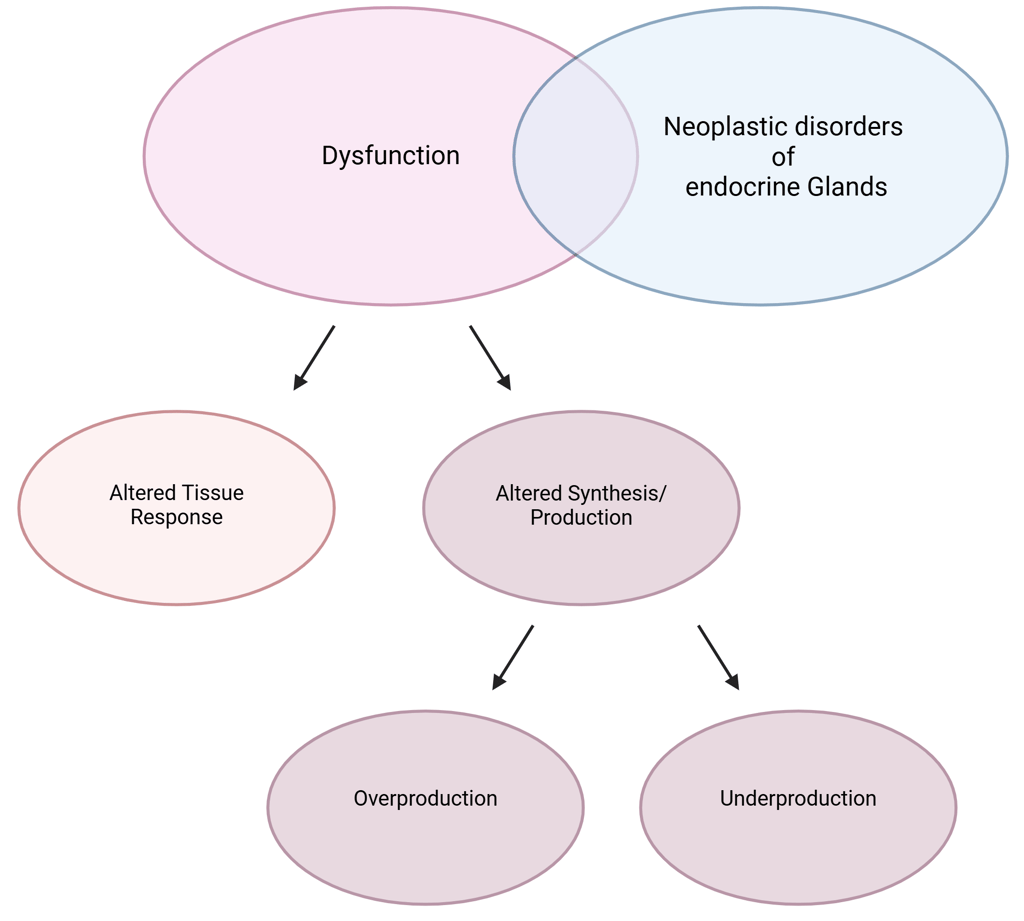General Aspects of Endocrine Dysfunction
Most endocrine diseases can be broadly categorized into two groups: functional disorders involving glandular dysfunction, and neoplastic disorders affecting endocrine organs. However, there is considerable overlap, as some conditions exhibit features of both categories. Dysfunction typically arises from either abnormal hormone production or altered tissue responsiveness to hormones. The underlying causes of endocrine dysfunction are diverse and will be explored in more detail later. Neoplastic disorders may result in hormone excess when the tumor tissue is hormonally active, or in hormone deficiency due to mass effect and subsequent suppression of normal gland function.


Illustration: Basic Pathogenetic Principles of endocrine diseases. Created in https://BioRender.com
References
All Illustrations were created in https://BioRender.com
For References, visit the Section "References" in General Principles of Clinical Endocrinology
© 2025 EndoCases. All rights reserved.
This platform is intended for medical professionals, particularly endocrinology residents, and is provided for educational purposes only. It supports learning and clinical reasoning but is not a substitute for professional medical advice or patient care. The information is general in nature and should be applied with appropriate clinical judgment and in accordance with local guidelines.
Portions of the text on this website were edited with the assistance of Artificial Intelligence to improve grammar and phrasing, as English is not my first language. All medical content, ideas for illustrations, and overall structure are original and based on the author’s own expertise and the cited medical literature. No AI tools were used to generate or influence the educational content itself.
All of the content is independent of my employer.
Use of this site implies acceptance of our Terms of Use
Contact us via E-Mail: contact@endo-cases.com